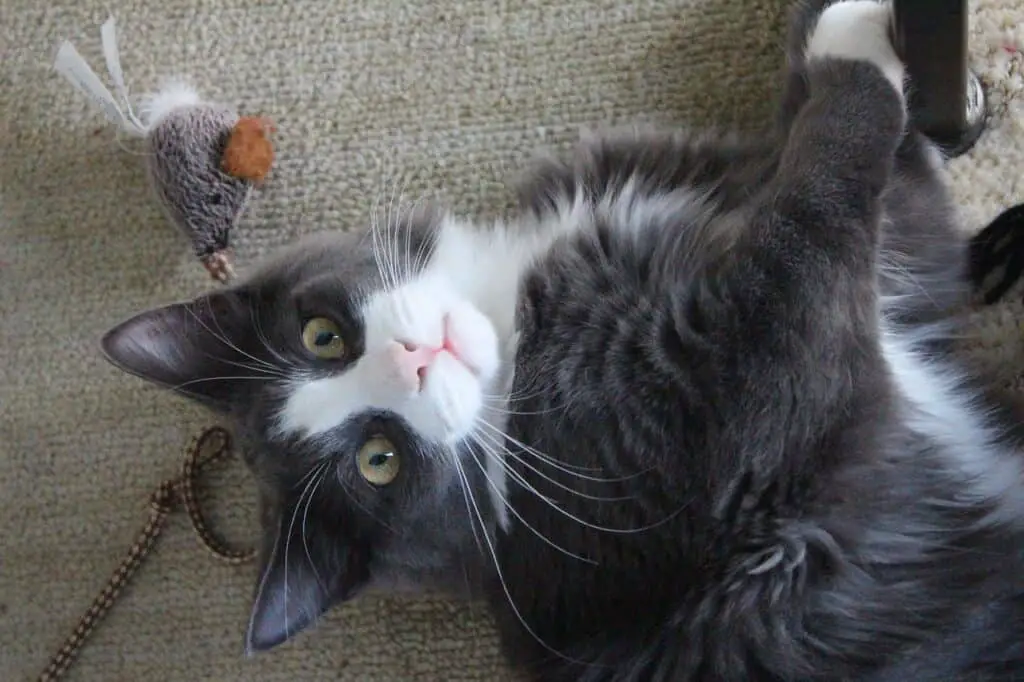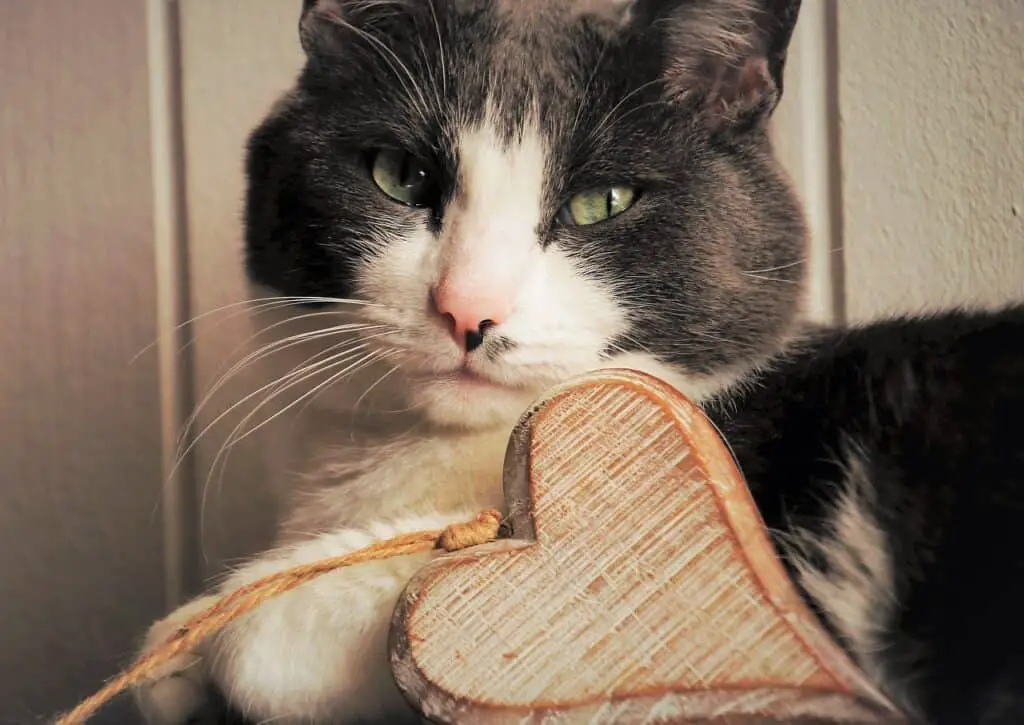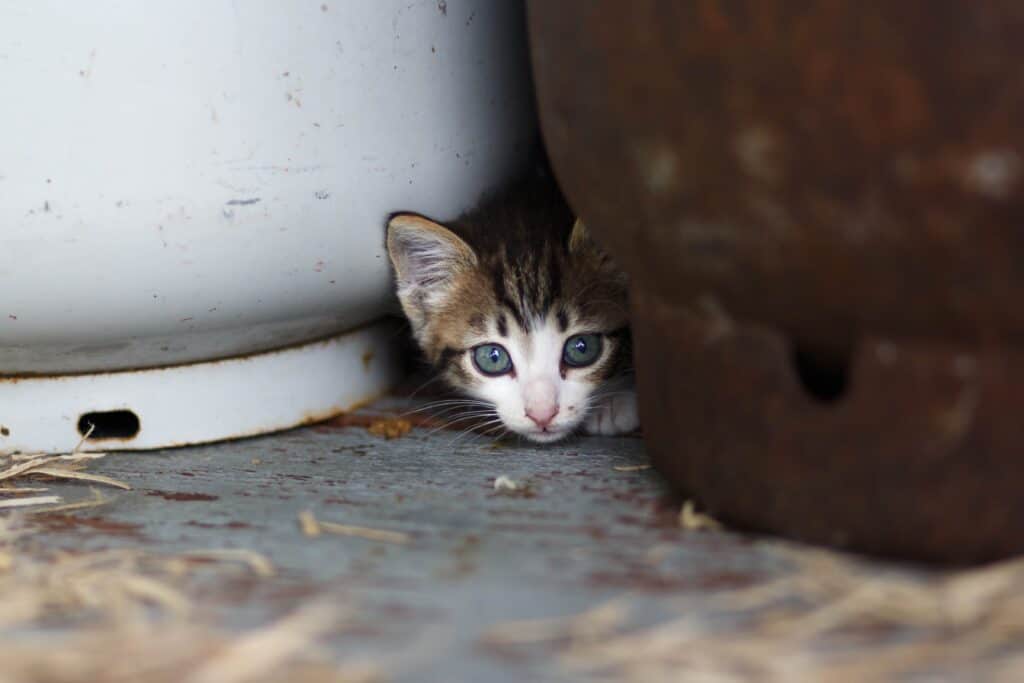Anyone who has ever lived with a cat knows that cats dislike, or are even scared of, particular sounds. Some are easy to obvious, like loud and sudden sounds but others are more obscure or even depend on the cat’s personality.
Cats hate sounds that are loud, sudden, high-pitched or resemble hissing. Any sounds that fall into those categories can get your cat startled or stressed. A cat’s hearing is far more sensitive than human hearing. Because of this, cats can get frustrated by sounds inaudible to us.
How powerful are fluffy’s ears?
Before talking about sounds that cats dislike and why let’s first talk about how sensitive cat ears really are.
Cats have developed an extraordinary sense of hearing throughout their evolution.
Their keen ear is an excellent asset in hunting for small prey, making rustling sounds in the tall grass, but yet how much hearing power resides in their ears?
Cats can hear sounds that range from as low as 48 Hz to 85,000 Hz. they hear lower frequencies and very high-pitched noises. By comparison, humans have a frequency range of about 20 Hz to 20,000 Hz.
But cats’ ears have more secrets to tell.
According to experts, the outer ear connects to 32 muscles. Those muscles allow cats to rotate their ears 180 degrees in the direction of any sound. Cats easily detect the location of a sound and move their ears accordingly.
With help from their large and directional ears, cats can pick up even the slightest of sounds, resulting in 4-5 times better hearing than humans.
Cats combine a large hearing range with a next-level muscular structure. However, their ear canals are delicate, and without proper care, they can suffer inflammation.
What sounds do cats hate?
A cat’s sense of hearing is both a blessing and a curse. A curse because they perceive loud and ‘irritating’, high-frequency sounds much clearer than us humans.
As a result, they can easily get stressed over various sounds. When confronted with sounds they dislike, cats will hide or run away.
Chronic exposure sounds like this can make your cat nervous, confused, stressed, or even aggressive.
Below are sounds that cats generally dislike. However, not all cats are the same, and your feline friend may not have a problem with these listed here.
This is, by all means, not an extensive list, and there are many plenty of sounds we could add to this list.
The denominator here is loud, sudden, monotone, and irritating sounds, that most cats will hate.
Engines of any kind
This includes loud cars or motorcycles but what we often don’t realize is that our homes contain several machines to make our life easier. Examples are dishwashers, clothes dryers, and washing machines.
From the dishwasher to the vacuum cleaner, these loud and monotone engine sounds terrify cats. Many cats dislike these sounds, so it’s good to be aware of what might scare your cat.
Washing machines and dishwashers
Although these have been becoming more silent lately, washing machines/dishwashers are loud enough to scare cats. They will instinctively stay away from it when used, but here are some tips to make your washing machine quieter.
- Adjust the feet to level out your machine correctly
- Make sure to empty your pants’ pockets, and no loose change rattles around in the tumbler.
- Make sure cups and plates don’t rattle by ensuring they’re secure before starting the dishwasher.
- Use anti-vibration pads or another soft base to place your machine on.
Blenders
If you’ve ever used a blender around your cat, you know how much they hate that sound.
It’s the specific loud and high-pitched sounds that scare the heck out of them. Next time you plan on doing a smoothie, it’s best to keep your cat in another room to avoid startling it.
Vacuum cleaners
This one is almost universal. Although we’ve all seen YouTube movies with cats chasing the vacuum cleaner, most of them wouldn’t come near one.
Vacuum cleaners scare cats for two reasons. Firstly because they’re loud, and secondly, experts say that it’s the lower air pressure in the room that vacuum cleaners temporarily cause when used. Allegedly, the cat’s ears are also susceptible to pressure differences.
If you’re planning spring cleaning, make sure your cat is in another room or, at least, has an escape route.
That being said, this does not apply to all cats. Have a look at this funny compilation of cats that don’t seem to mind the vacuum cleaner 🙂
High-pitched sounds
Because of a cat’s ability to hear very high-pitched sounds, they can hear sounds coming from items that we never imagined making a sound.
Especially electronic devices often emit very high-pitched sounds imperceivable to human ears.
If you notice your cat avoiding certain rooms or spots, it could be due to an electronic device emitting an annoying sound.
Below are a few examples.
Fluorescent lightbulbs
Fluorescent lightbulbs make a high-pitched noise inaudible to us but which cats can hear. It’s a nagging and irritating sound that they hate.
Luckily, fluorescent lights are slowly being phased out because LED lights are gaining popularity. Good news for cats!
Electronic screens and remotes
Think about your television or computer screen; does it make any sound when you turn it on? The answer is yes; we just can’t hear it.
Most electronic screens (like computers and TVs) produce a high-pitched sound inaudible to humans. Cats can hear this sound, and it annoys them.
It’s not as bad as with the old-fashioned CRT screens, and some brands are worse than others, but it may be a source of annoyance to your kitty-kat.
Loud and sudden sounds
Loud and sudden sounds annoy a cat for two reasons;
Because a cat’s ear is so sensitive to even the faintest sounds, they perceive loud sounds even louder than humans do.
Secondly, loud sounds activate a cat’s survival instinct as they may alert them to potential predators.
Loud and sudden sounds can trigger an anxious response in your cat. Sometimes, these loud noises are outside of our control. For example, you can’t control a thunderstorm or sounds coming from outside, but it would be good to be aware and avoid startling your cat.
Fireworks
While for us a feast for the eyes, fireworks are commonly hated by most pets, including cats. It makes them anxious and disoriented.
We usually cannot avoid fireworks being lit, but we can take measures to make it more bearable for your cat.
Here are a few things that could help:
- Prepare a quiet room where your cat can hide during the fireworks
- Some cats like to hear soft music to distract them
- Your vet can prescribe mild tranquilizers (usually valium) to get them through it.
Loud music
Cats generally don’t like music. At least not most of our music.
Playing loud music can be a stressful experience for them. Keep the volume low, or make sure your cat’s not around.
Scientifically speaking, cats can enjoy the music when we design it for them. By combining sounds, cats love, we can create enjoyable cat music.
So unless your favorite singer releases an album using cat-friendly sounds, don’t play loud music to your cat.
Sometimes it is also dependent on the type of music you play. Cats do seem to enjoy classical music because of the generally high-frequency dynamic, so playing Beethoven might not bother your cat as much.
Also, if you’re wondering why your cat doesn’t like your singing, look at our explanation right here.
Loud vocalizations
Whether it’s an entertaining discussion, a fight with your better half, or a birthday party, your cat will likely find a quiet spot to wait it out.
Most cats are not fans of loud voices, laughter, or screaming children.
Thunderstorms
The abrupt sound of lightning touching the ground can frighten some cats! While most cats don’t mind the sound of thunders, others are terrified of it!
Scientists also hypothesize that cats can sense a thunderstorm long before we know it’s coming. This could be due to changes in air pressure or faint, low-pitched sounds, both of which the sensitive cat ears can detect.
If your cat is scared of thunder, try to put on some classical music to help it relax.
Sirens and alarms
Cats hate the sounds of car alarms, an ambulance passing by, or a smoke detector going off for obvious reasons.
Alarm sounds are stressful for cats since they can’t figure out the source or the reason. That uncertainty makes them more nervous about it.
Door slams
This is an obvious one that even startles us from time to time. Beware not to slam your doors or have them slam shut because of a draft.
Clanging pots and pans
Are you doing the dishes or preparing a yummy dinner? Your cat may find a quieter spot until you’re done.
Clapping
Cats are no fan of clapping sounds either. They usually don’t expect it, and it’s an example of loud noises that they dislike.
Cat owners often use clapping to deter a cat from doing something it’s not supposed to. Although effective, it’s not a good idea to do this.
Sounds resembling hissing
We’ve all heard cats hissing before. It’s a threatening sound that warns cats to stay away or else…
Cats are programmed to be alert to hissing sounds. So when they hear something similar, it will put them on high alert.
Here are some examples of everyday hissing sounds;
- Sprays like deodorant, cleaning sprays, hair sprays etcetera
- Plastic bags
- Tearing paper
To wrap it up
As humans, we are so used to the signals our senses provide to us that it’s sometimes hard to imagine that our pets’ senses work differently and they may experience the world differently.
In the same way, as for us, the effects of noise can impact our cat’s health and well-being. Although we often cannot filter out all environmental noises that are cats are subjected to, and some cats are often in or around areas with a lot of noise, the toll of noise pollution can affect their health.
being aware of how certain sounds are perceived by our cats and trying to minimize the abovementioned sounds will already help improve their lives.




